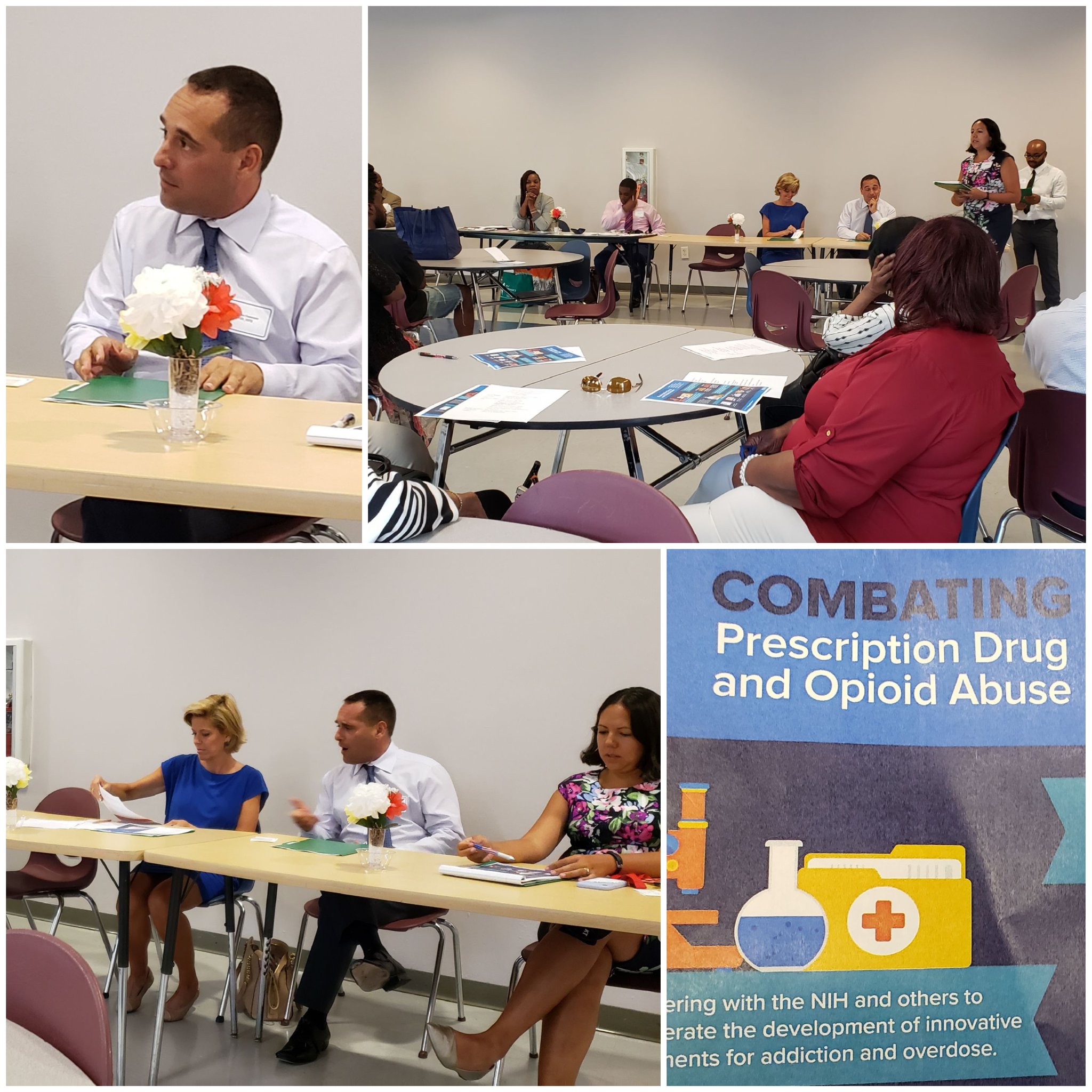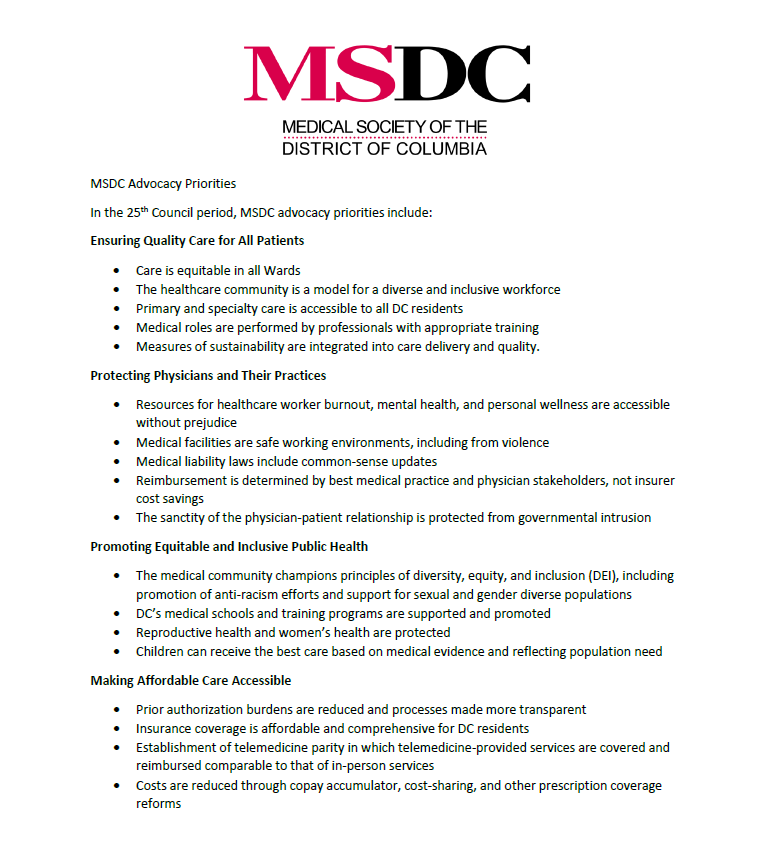Opioid Policies

Much like the rest of the United States, residents of the District of Columbia are struggling with substance use disorder (SUD) rate increases and high rates of opioid-related deaths. Unfortunately, these are multi-faceted issues that require year-long initiatives and systematic programs to address the myriad causes of addiction.
MSDC stands as a partner to the District government and private entities to help arrest the rates of opioid and substance abuse in the District. Through our advocacy for better prescribing practices, education on addiction, and even helping our own community through our Physician Health Program, MSDC is working to make DC a leader in reducing SUD, OUD, and addiction.
On a related note, MSDC is passionate about helping patients make prescriptions and medication more affordable. Whether expanding access to biosimilars or advocating for more affordable co-pays, MSDC wants to help our patients afford the medications they need.
MSDC Statement and Testimony on Opioid and Prescription Issues
25th Council information coming soon
MSDC Announces 25th Council Period Advocacy Agenda
With the current Council of DC legislative period approaching its end, MSDC is pleased to announce its advocacy agenda for the next two years.
At its December 5 Board of Directors meeting, the Board unanimously approved its advocacy priorities for 2023-2024. The agenda is modeled after the one the Board approved two years ago and establishes the Society's advocacy priorities during the next Council period. The agenda was updated and reviewed by MSDC's Advocacy Committee prior to the Board meeting.
As seen below, the agenda focuses on four areas that help make the District "the best place to practice medicine":
- Ensuring Quality Care for All Patients
- Protecting Physicians and Their Practices
- Promoting Equitable and Inclusive Public Health
- Making Affordable Care Accessible
Most of the priorities remain similar from the 2021-2022 document, as this one seeks to build off of a series of major advocacy wins this Council period. A summary of this session's advocacy successes will be published in the near future.
Making the list this year are a few new or
adjusted priorities. Nationwide challenges to the expertise of
physicians led to clearer calls for advocacy in areas like children's
healthcare, reproductive health, and health facility safety. The
document also includes for the first time advocacy for "measures of
sustainability" to reflect concerns about environment change and
medicine. Telemedicine is also explicitly spelled out as the pending end
of the federal public health emergency and insurer practice changes
endanger the effectiveness of this important medical tool.
MSDC
also looks to build on its unprecedented grassroots and testifying
record this Council period. MSDC members and physicians who want to become more involved in local advocacy can contact Robert Hay at hay [at] msdc.org.

Sample of Legislation MSDC Tracked on Opioid and Prescription Policy
What does it do? The bill authorizes licensed pahrmacists to dispense interchangeable biological products and requires notifications to physicians when such interchangeables are dispensed.
MSDC position: MSDC has a position of priority support on this legislation, identifying its passage as one of its highest legislative priorities.
Current status: SUCCESS. The bill was passed by the Council and signed by the Mayor.
What does it do? The bill requires prescription opioid medications to include a statement that the drug is an opioid and opioids may cause dependence, addiction, or overdoes.
MSDC position: MSDC supports the legislation.
Current status: The bill had a hearing before the Committee on Health on July 29, 2020. MSDC leader Dr. Sam Kareff testified for the Medical Society. It passed the Council on November 10 and was signed by the Mayor December 7.
What does it do? The bill prohibits insurance companies from factoring the use of PreP in decisions related to disability, life, or long-term care policies.
MSDC position: MSDC supports this legislation
Current status: The bill was introduced on January 8, 2019 and assigned to the Committee on Business and Economic Development.
